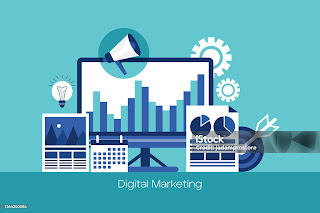Combining Answer SEO and Traditional SEO for Digital Marketing Success
Acute Success with Answer SEO and Traditional SEO
Digital marketing is a constantly changing market, and search engine optimization (SEO) is a widely used tool to drive traffic and generate leads. Within this niche, marketers have developed two distinct yet complementary methodologies - functional SEO and answer-driven SEO. It is crucial to understand how to successfully integrate these strategies so that your brand's visibility and success are maximized.
Understanding functional SEO
Traditional SEO encompasses a broad range of practices aimed at improving a website's ranking on search engine results pages (SERPs). This approach primarily focuses on optimizing various on-page and off-page elements, such as keyword targeting, meta tags, backlink building, and website structure. The goal is to enhance a site’s visibility for relevant search terms, ensuring that it appears in front of potential customers actively seeking information or solutions. Marketing agencies specializing in SEO services often emphasize the significance of keyword research, competitive analysis, and content optimization in executing effective traditional SEO campaigns.
Exploring the Answer SEO
However, answer SEO is a more targeted strategy, which addresses specific questions or problems that users search for online. As voice search becomes more common, featured snippets are becoming increasingly prevalent in search results, leveraging this approach. As a result, answer SEO positions brands as authoritative sources of information by providing comprehensive, straightforward, and concise answers to user queries. This method is particularly beneficial for e-commerce platforms using Shopify SEO, as it aligns perfectly with the desire of users to find quick and easy solutions to their shopping needs.
Integrating Answer SEO with Traditional SEO
To achieve optimal outcomes, brands must recognize the importance of integrating both answer SEO and traditional SEO strategies. A multifaceted approach can enhance user engagement, improve search rankings, and ultimately drive conversions.
1. Keyword Research and Content Development: Start by conducting thorough keyword research to identify both broad and specific queries related to your niche. Utilize tools that offer insights into user intent, focusing on long-tail keywords that align with questions users may have. By developing rich, informative content that satisfies these queries while incorporating traditional SEO practices, brands can solidify their position within SERPs.
2. Optimizing for Featured Snippets: Creating content aimed at providing direct answers to specific questions can help brands capture valuable real estate in the form of featured snippets. These snippets often appear at the top of SERPs and can significantly enhance click-through rates. For instance, e-commerce brands should consider structuring product pages and FAQs in a way that answers common customer questions, employing headings and bullet points for clarity.
3. Backlink Strategy: Up until now, building backlinks has been essential for enhancing domain authority. Parallelly, tailing linking opportunities can emerge from content that addresses user inquiries, as authoritative websites are likely to reference content that provides valuable answers. Thus, an integrated backlink strategy that takes into account both traditional keyword-focused content and answer-driven material can enhance the overall authority of the brand.
4. Utilizing Analytics: Finally, leveraging analytics tools to monitor the performance of both strategies will provide valuable insights into user behavior and preferences. By analyzing engagement metrics, brands can refine their content strategies to ensure that they are meeting the needs of their audience in a way that aligns with both SEO methodologies.
Therefore, A synergy between traditional SEO and answer SEO is compulsory for brand success in the era of search engine marketing. By combining in-depth keyword targeting with a focus on providing precise answers to user inquiries, marketing agencies can enhance their clients' digital presence. For Shopify e-commerce marketing, this integrated approach not only enhances businesses' search visibility but also builds a closer connection with their audience. In the end, you will get a solution to drive conversions and ensure long-term success. Adapting to the complexities of both SEO approaches is more than a competitive advantage; it is a requirement for attaining long-term growth in a digital-centric environment.



Comments
Post a Comment